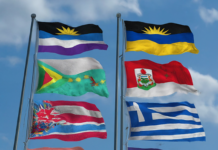Procedure to claim DTAA benefits by NRIProcedure to claim DTAA benefits by NRI
To benefits from the provisions laid under DTAA, an NRI individual will have to provide the following documents in a timely fashion to the concerned deductor eg. bank in case of tax on interest income earned.

- Self-declaration cum indemnity format
- Self-attested PAN card copy
- Self-attested visa and passport copy
- PIO proof copy (if applicable)
- Tax Residency Certificate (TRC)
According to the Finance Act 2013, an individual will not be entitled to claim any benefit of relief under the Double Taxation Avoidance Agreement unless he or she provides a Tax Residency Certificate to the deductor.
Tax Residency Certificate (TRC):
Section 90 (4) of the Income Tax Act has been made it mandatory for a non-resident who wishes to avail Treaty benefits to provide Tax Residency Certificate (TRC) to the Indian Company (the Tax deductor).
TRC is issued by the Tax / Government authority of the country in which the Non-Resident is the resident of and is a proof that the recipient is resident of that country and therefore eligible to get benefit of the treaty that both the countries have entered into. No other document in lieu of TRC shall be considered for availing any benefit under the Treaty. Therefore, it is abundantly made clear in the Indian Income Tax Act that TRC is mandatory document to get an access to the Treaty.

Rule 21AB of the Income-tax Rules prescribes that the TRC must contain the information specified in Form 10F. The information required to be furnished under Form 10F is:
- Status of the assessee;
- Nationality;
- Tax Identification Number in the country of Residence or Unique number on the basis of which the person is identified in that country;
- Period for which residential status is applicable;
- Address of the assessee in country of residence.
If the TRC issued by the Government authority contains all the information as prescribed above (Form 10F), it will be accepted. If not, in addition to the TRC, the Non-resident will have to provide a self-certified Form 10F providing the details as stated above.
If the TRC is not produced by the non-resident, he would not be able to apply beneficial provisions of the Treaty, if any and the Indian Company will have to apply the provisions of domestic Income Tax Act on that payment and withhold the tax accordingly.
| SUMMARY OF TRC:- To receive a Tax Residency Certificate, an application has to be made in Form 10FA (Application for Certificate of residence for the purposes of an agreement under section 90 and 90A of the Income-tax Act, 1961) to the income tax authorities of country of residence. Once the application is successfully processed, the certificate will be issued in Form 10FB. |
DTAA methods
There are two ways NRI’s can claim the DTAA benefits, and let’s discuss it here
Tax Credit Method

This is the most popular method of taking DTAA benefits. Under tax credit method, the person first has to take into consideration all his income into consideration (foreign country + home country income) and calculate the taxes applicable. Then they will calculate the taxes as per home country and take that much credit while paying for taxes.
For example, if someone has a bank interest in India for 20 lacs and the tax rates applicable to them is 30%, and if in the foreign country they live right now taxes is at 40%, then the person will be able to take back the credit of 30% and only pay additional 10% taxes. This method makes sure that there are almost no way a person pays dual taxes.
Exemption Method
This is another way, in which you don’t have to consider your home country income at all and just have to pay the taxes on the income which you have earned in the foreign country. So it does not matter what are the tax rates in different countries. As per the DTAA treaty, you just skip the home country income altogether, so you just end up paying taxes in home country only.
Take Professional Help with it comes to DTAA
Once you have become an NRI, and you have multiple income sources in different countries and when you also have spent different times in India and abroad, it becomes quite complicated to take benefit of DTAA rules. You also have a chance of making a mistake and pay less tax (or to pay more) if you try to do it yourself.

I hope this article was able to help you understand various rules related to DTAA.















